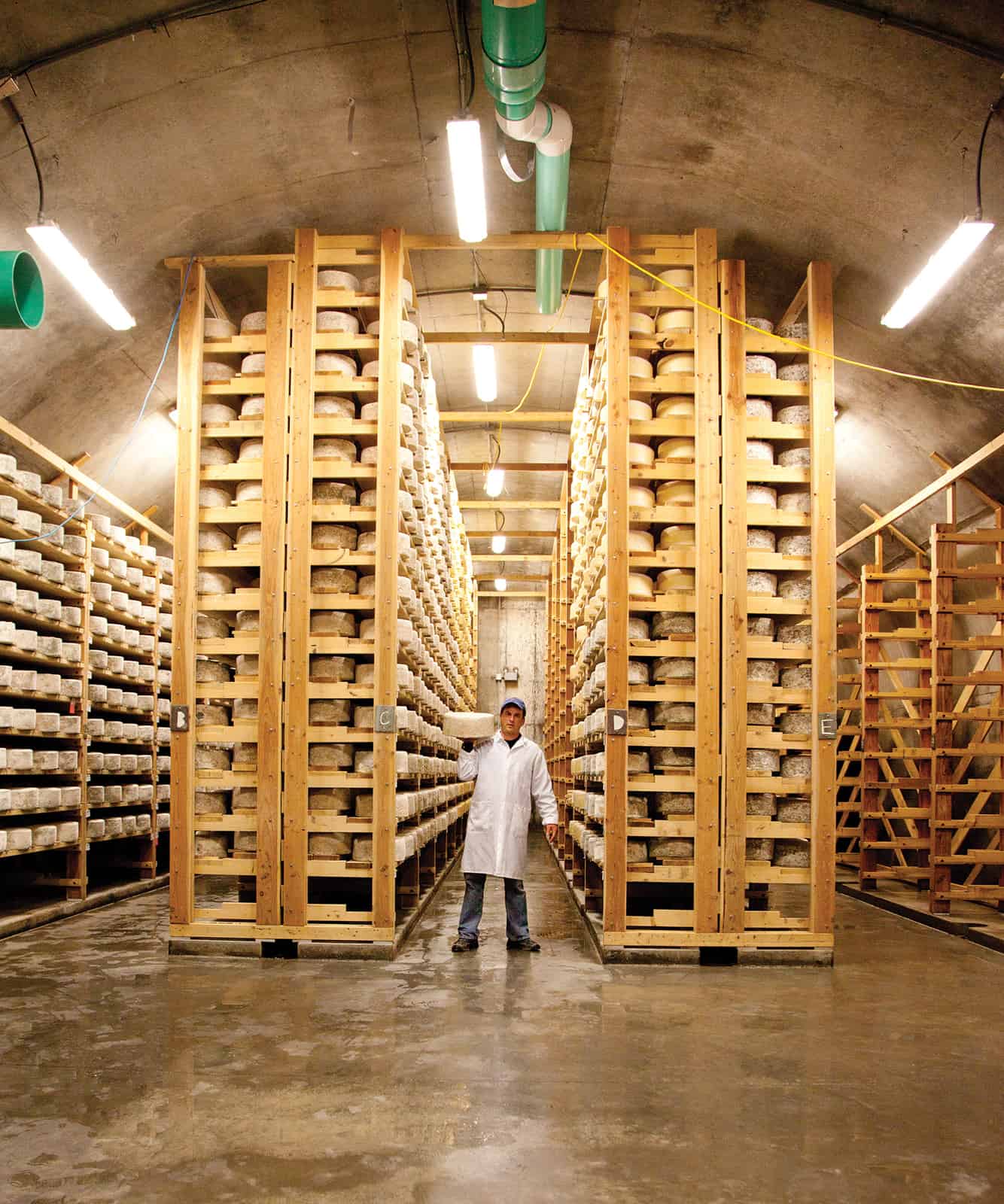
When Mateo Kehler and his brother, Andy, spontaneously purchased a farm in Greensboro, Vermont, in 1998, they weren’t exactly sure what to do with it. So, they took some time to think. Following the purchase, Kehler’s studies in rural economic development led him to the London School of Economics and subsequently Neal’s Yard Dairy, one of the UK’s premier cheese shops.
Armed with new knowledge, Mateo and Andy opened Jasper Hill Farm in 2003. By 2006, their Cabot Clothbound Cheddar had won Best of Show at the American Cheese Society Judging and Competition, and in 2018 Jasper Hill netted both Best of Show (for Harbison) and first runner up (for Calderwood). These days, Jasper Hill is dedicated to setting the standard for artisan cheese, recently constructing a large-scale hay drying facility as well as a microbiology lab. We caught up with Mateo to talk science, Greensboro, and—of course—delicious wedges and wheels.
On How to be the Best
Work. It’s like being an Olympic athlete or a concert pianist: Lots of people can get 90 percent of the way there, but it’s how you deal with the last 5 or 10 percent. Andy and I worked so hard [starting the business]. Now there are 80 of us, and we work so fucking hard.
On the Value of the Cellars at Jasper Hill
From a finance perspective, cheese is a store of value that increases over time, and the Cellars [affinage facility] is like a bank. So, if you think about this bank, and the inventory increasing in value as cheese ripens, on the finance side we’re leveraging that inventory to support a producer group and thousands of acres of land associated with those producers.
On Training and Teamwork
I’m a professional amateur. The reason we’ve done so well is we’ve able to attract talented people who are mission-driven—money’s important, but you can’t pay people to care. In lots of ways, my job is to connect the work we’re doing to the world beyond.
On Staying Ahead
It’s our mission to be the standard bearers for quality and innovation in the artisan cheese industry. It’s our mission to be ahead of the game.
On the Working Landscape
The landscape is the backbone of the economy in rural Vermont. In order for it to survive, we need to develop markets and higher value products, with a return of a different order of magnitude. Those returns are distributed differently across our producer group than what commodity markets do. So this is an economic and agricultural experiment and our response to globalization.
On Milk and Microbes
We milk cows, but we also farm microbes. [Unlike an industrial operation,] we actually manage the microbiology from our forage straight through our finished product; we’re managing the whole chain.
On Meaningful Work
At the end of the day, we’re trying to satisfy three fundamental needs: meaningful work, in a place that we love, with people that we love. And to us, that’s a whole life.



